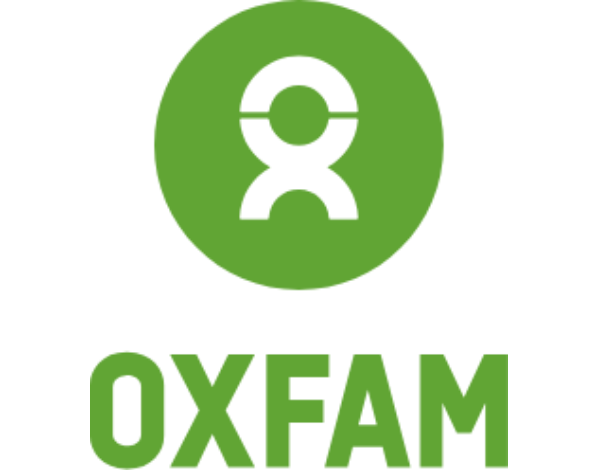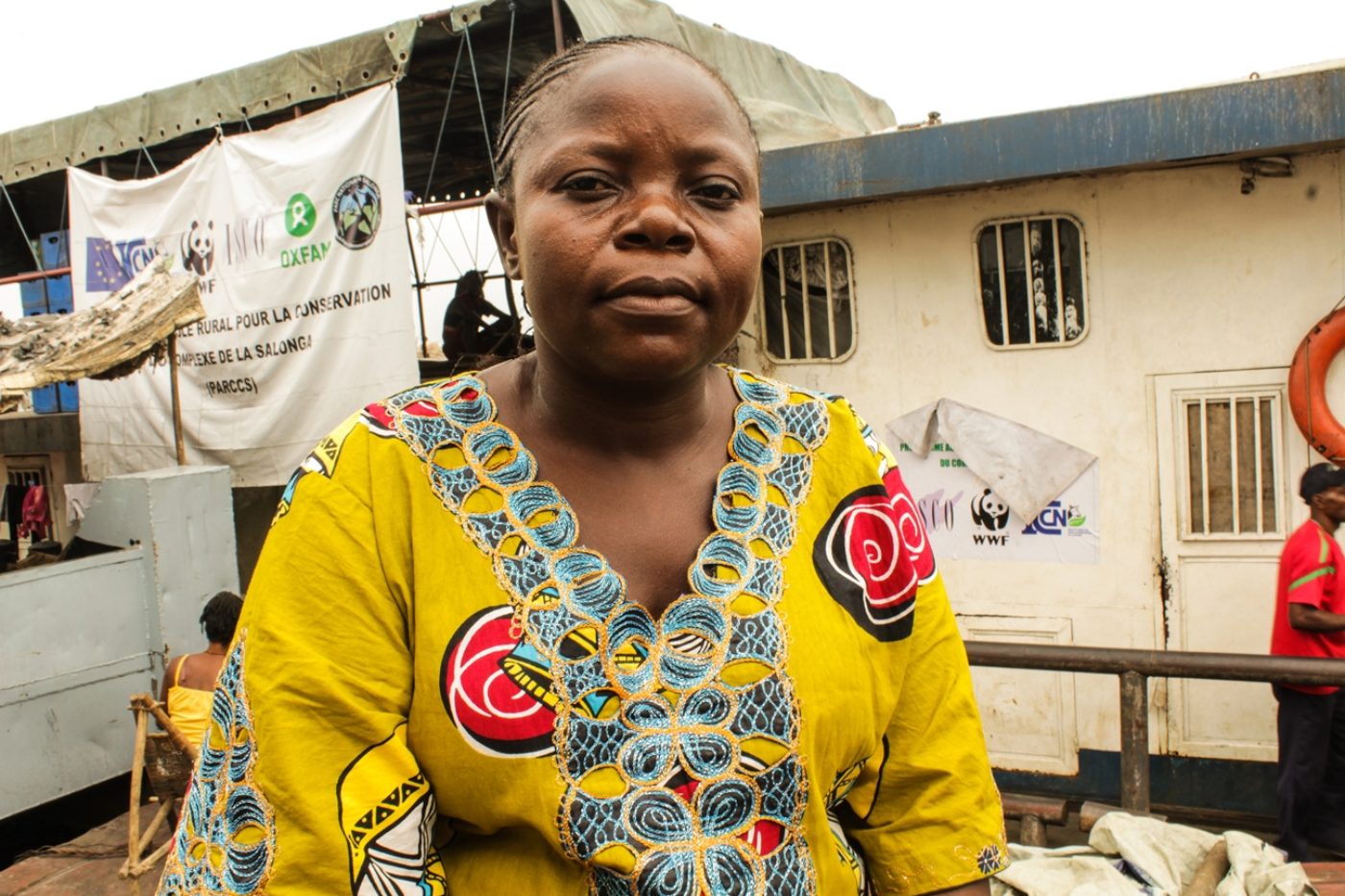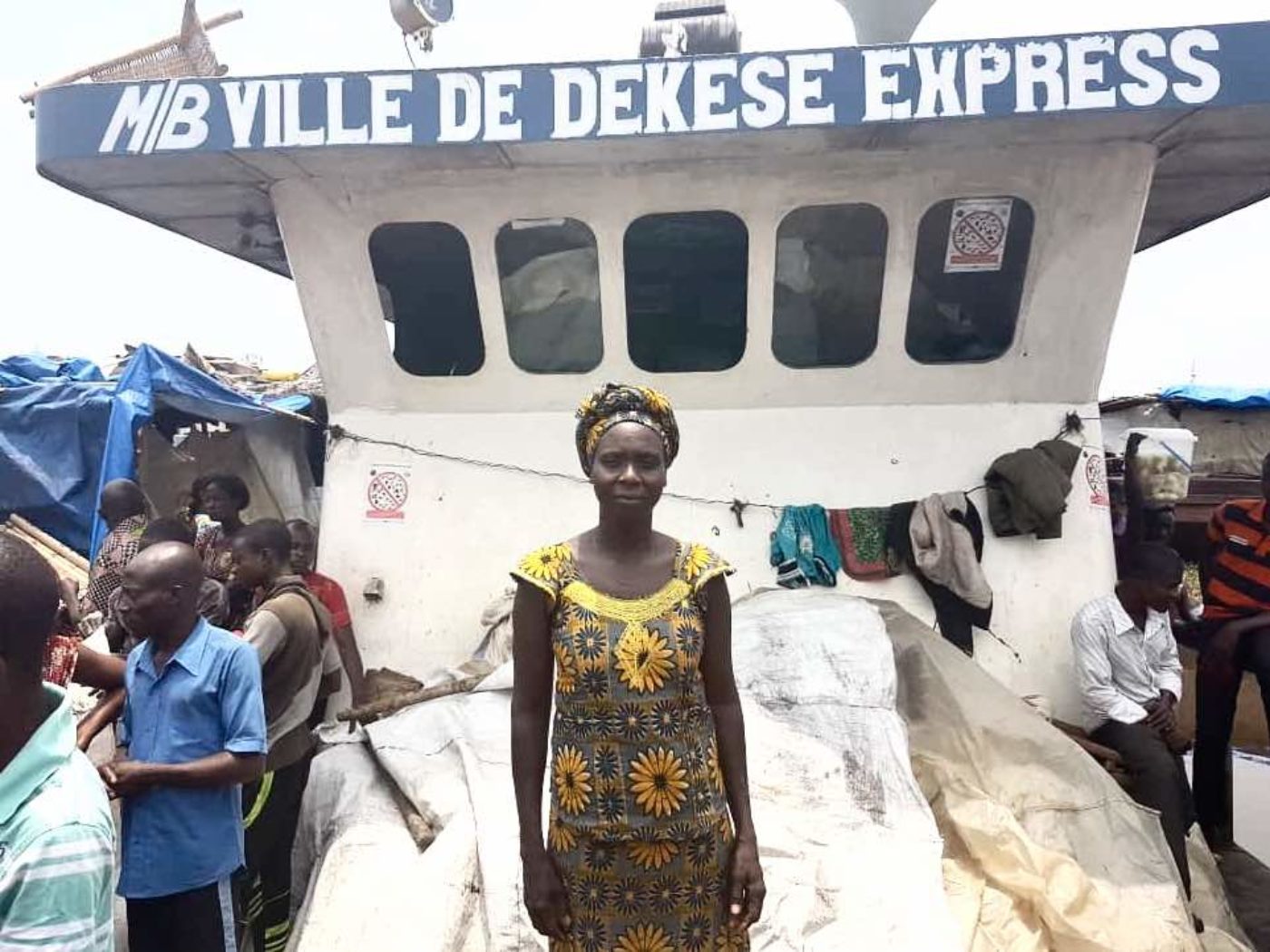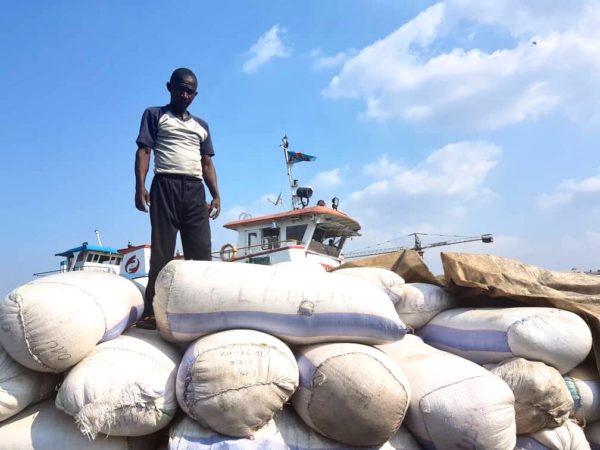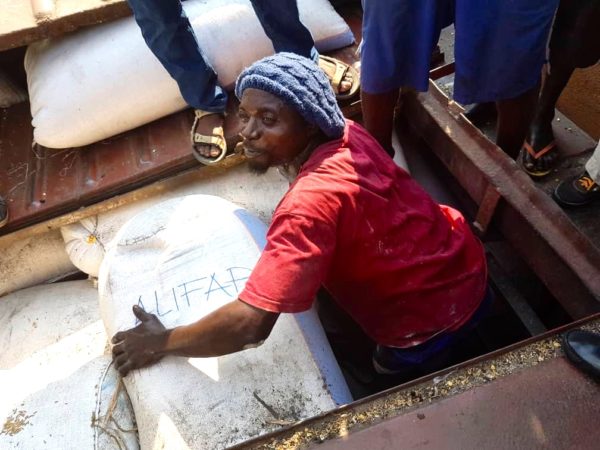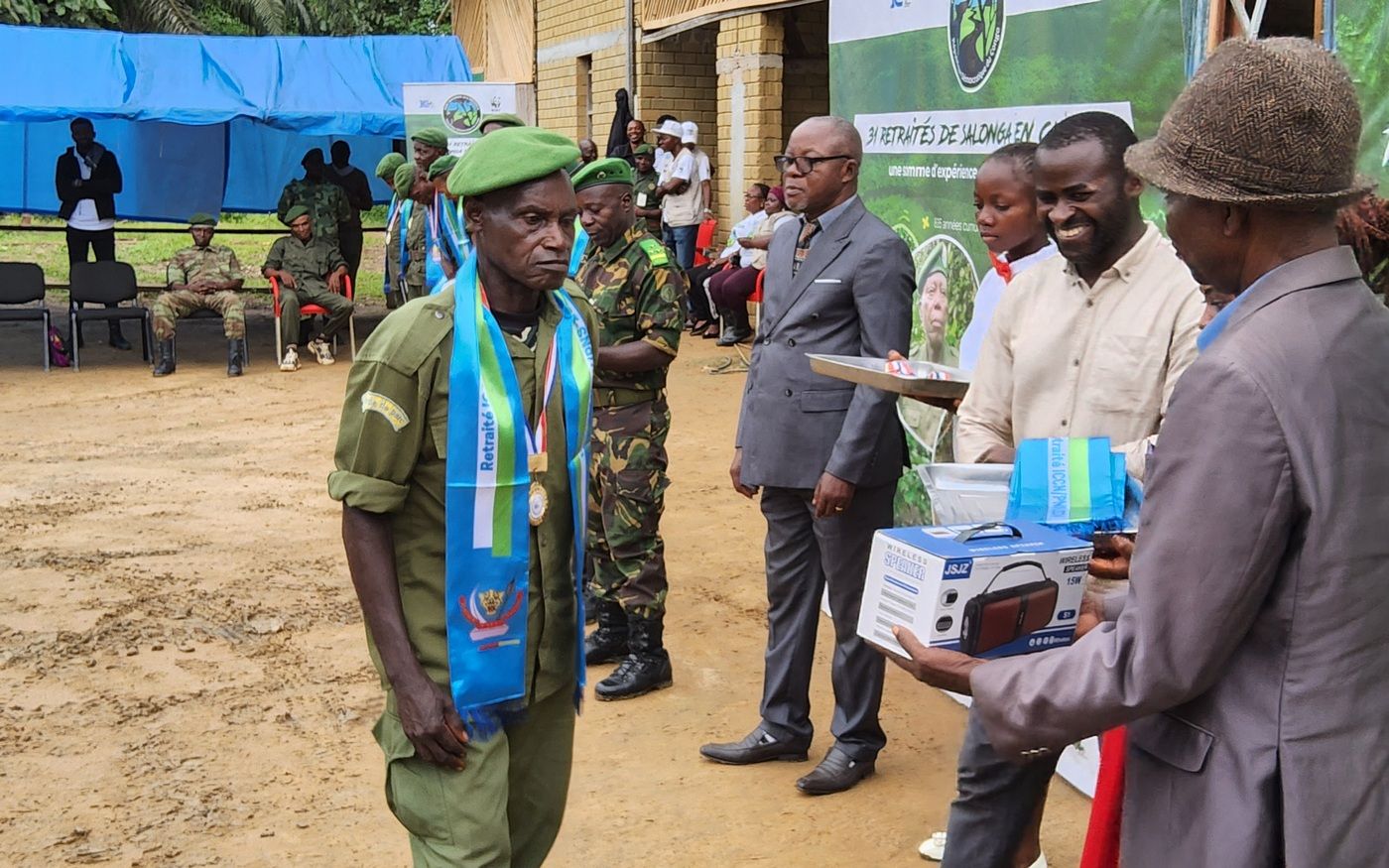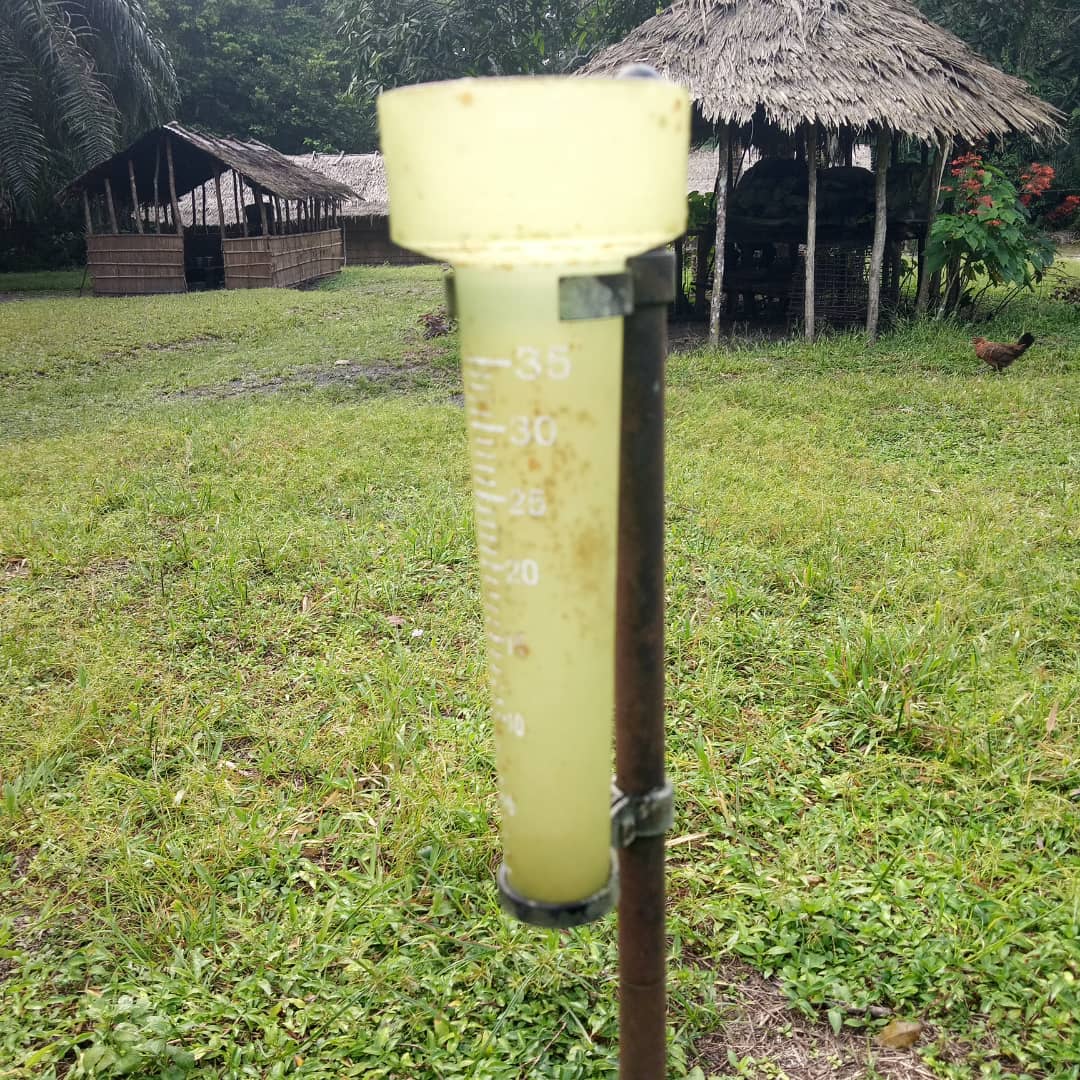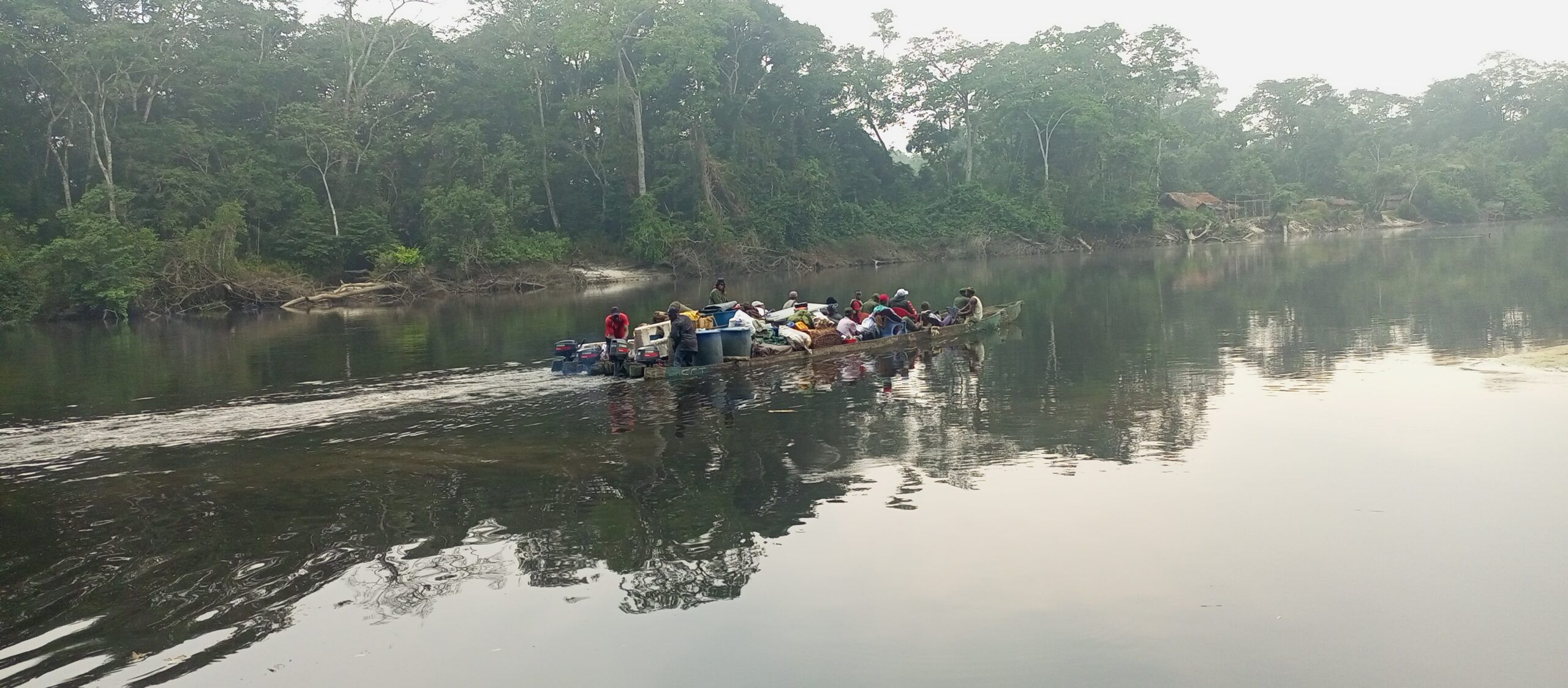Bringing goods to the market
Oxfam, a partner of Salonga National Park, works with farmers, farmers’ associations and local development committees around the city of Dekese in the South of the park. One of the goals is to increase farmers’ income by helping them access more profitable markets. After two harvest seasons, Oxfam chartered a boat that transported 126 tons of cassava, rice, peanuts and other crops to the Kinshasa market. 18 farmers were chosen by their communities to be part of this trip. Here is what they have to tell us when they arrive in Kinshasa.
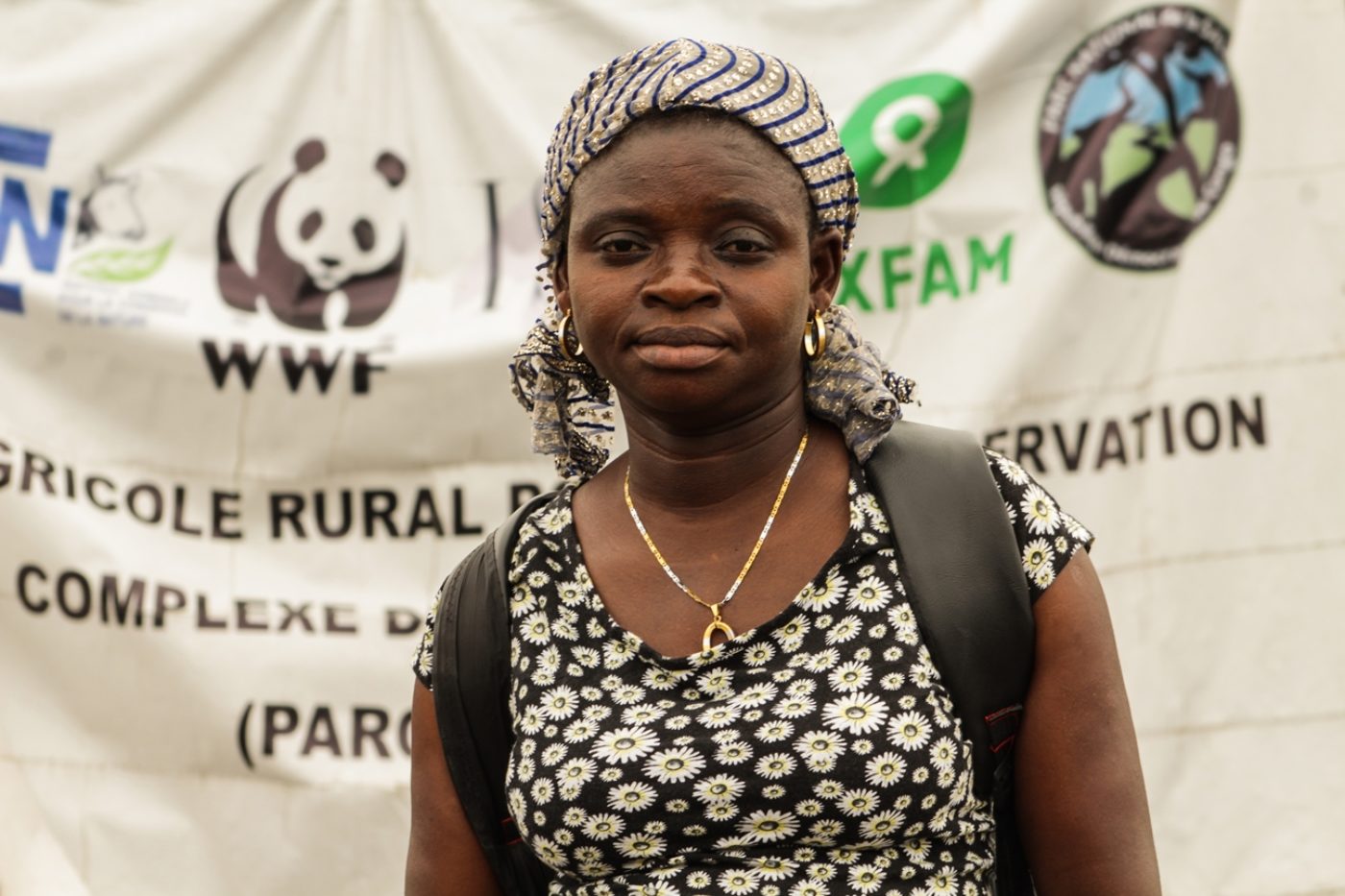
Laurence Basa Nkoy, farmer and nurse
I am a mother of two children. This is the second time I arrive in Kinshasa. In addition to farming I am also a nurse. In our field I sow mostly maize, squash, cowpea and rice.
It’s an opportunity for us to be here. From the revenue I would like to buy medicine for my children. Here at the port of Kinshasa we help each other, we protect each other and we watch the goods to avoid the risk of being robbed.
We spent two weeks together in a medium-sized boat carrying 126 tons of our goods. The trip went well but we hope to have a bigger boat next time.
With the support of Oxfam, we farmers are now producing higher yields, which allows us increase our income. I already see changes in our household.
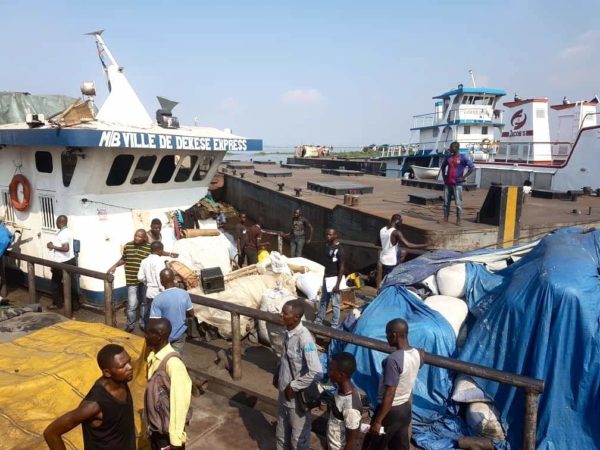
The boat from Dekese arrives at the port of Kinshasa.
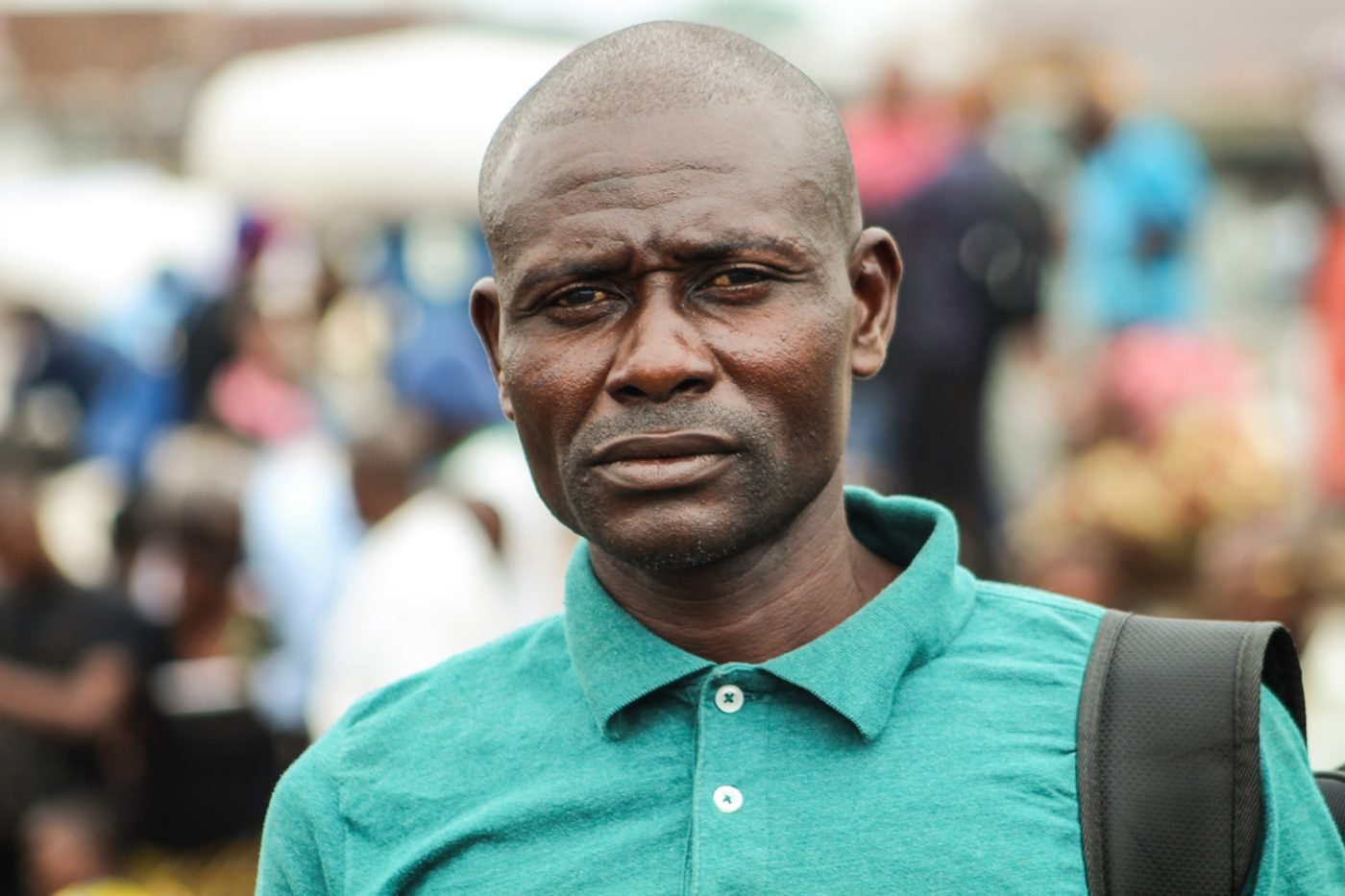
Banssango, Chairman of the sales committee, 45 years old
We rode the boat for 15 days to reach Kinshasa. Before leaving some of us were afraid of the long journey. In the end everything went well. The most difficult moments were the heavy rains during the trip. I must say that since we arrived in Kinshasa, we made a significant profit from our sales. For example, here we sell a big bag of maize for 65,000 Congolese francs whereas in Dekese the same bag would sell for 25,000 francs maximum.
Previously we did not know good planting techniques but we learned a lot from Oxfam. Now we know that yields are better if seeds are sowed by line and by spreading seeds. We learned how to study the fields well before planting, and we now know how to better recognize fertile soil. We also learned about planning. We are used to working in groups now and in a week we do a job that would have taken us more than a month if done alone.
Before, to feed our families we hunted animals such as antelopes, gazelles, pangolins or elephants. Now we have abandoned the hunt. With the profits from the sale of our agricultural products, we intend to pay our children’s school fees and invest in small businesses.
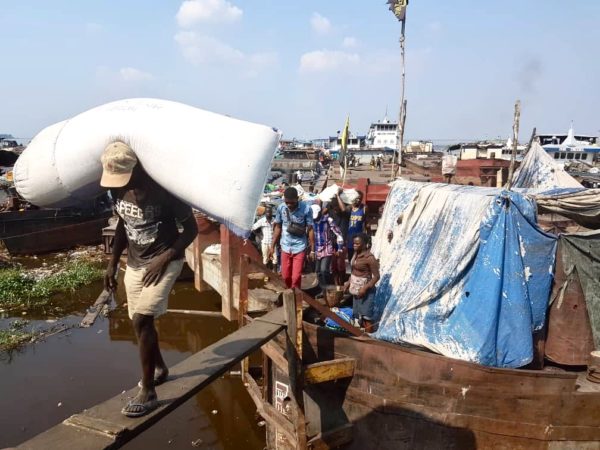
A farmer from Dekese lands his agricultural products at the port of Kinshasa.

